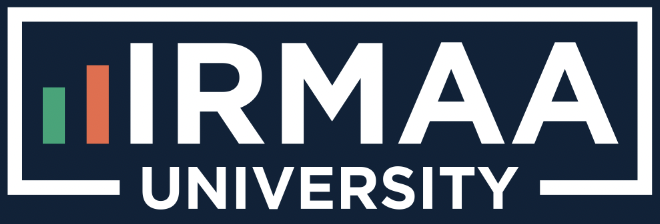
Health care costs are not only your largest expense as you start a new journey in life, but also pose the largest risk to your financial plan. Do you have a sustainable plan in place?
Most people do not realize the role that these costs at retirement play in their financial planning, and so they do not take the proper steps in order to construct a viable plan. A Nationwide Survey “Health Care Costs in Retirement” Consumer study 2012, revealed that 4 out of every 5 people planning for retirement cannot accurately estimate how much they will pay for health care throughout their retirement.
Your Health Care Costs May Be Significantly More Than You Planned For
This may come as a surprise to you, but were you aware that at retirement, your health care costs can be expected to increase? Though Medicare and other forms of employer-provided retiree insurance may cover a portion of your medical expenses in retirement, a significant amount will be paid out of pocket by you. This unexpectedly large expense alongside increasing health care costs, the likelihood for long-term care (which is not covered by Medicare), and the decreasing amount of Social Security benefits and it becomes ever more clear that proper planning is essential in achieving financial security in retirement.
Did you know that the out-of-pocket costs for a couple retiring today and spending 20 years in retirement can be expected to exceed $240,000 in out-of-pocket medical expenses throughout retirement?
Risk Changes Can Affect Your Costs At Retirement
During the planning phase of saving for your retirement, accounting for risks such as market declines and potential inflation likely weigh heavy on your mind. Once you enter into retirement these risks do not simply fade away. In fact, these risks are amplified as additional risks arise. An example of such a risk is the threat of outliving your retirement savings and therefore leaving your family with nothing. One of the most daunting new risk changes you will face in your golden years are your health care costs.
How High Is The Spending?
With health care spending estimated to increase at a rate of 5.8 percent through the year 2020 (according to “National Health Spending Projections Through 2020,” Health Affairs), the risk of rising health care costs is a real threat to your retirement budget.
What Role Does Medicare Have On Health Care Costs?
Medicare is a federally funded health insurance program for Americans aged 65 and over. There are different parts of Medicare that cover certain areas of health.
- Medicare Part A
Medicare Part A, also known as “hospital insurance,” covers inpatient hospital stays, hospice care and some nursing home facilities. - Medicare Part B
Medicare Part B is referred to as “medical insurance.” It covers outpatient treatment, some doctor’s visits, and certain preventative services. - Medicare Part C
Medicare Part C also referred to as “medical advantage plans,” offers medical plans through a private company that works with Medicare. These plans combine the benefits of Medicare Part A and Part B and also sometimes cover prescription drug costs. - Medicare Part D
Medicare Part D is prescription drug coverage.
It is important that as a future retiree working on a retirement financial plan that you understand that Medicare does not cover all health care costs. In fact, according to the Employee Benefit Retirement Institute you can expect that Medicare will cover only roughly 51 percent of your medical expenses in retirement.
In an effort to help more adequately prepare yourself and to better understand your health care costs when you retire, it is very helpful to know and comprehend your medical insurance options and what each covers, specifically. That way you will be clear about what you will be required to pay out of pocket.
When Do I Apply For Medicare?
You are eligible to enroll in Medicare the month of your 65th birthday and it is recommended that you do so at this time. You will have a seven-month window to enroll after your 65th birthday without being penalized. After this time expires, you will be offered the opportunity to enroll every year there on out. Unfortunately, if you choose the Late Enrollment option you will suffer penalties that will result in higher premiums that will last for the remainder of your life. As one of the first major decisions you will face in retirement age, it is important that you take this enrollment seriously. Know your options and make sure that you are confident in your plan selection.
Do You Know What Your Health Care Costs Will Be At Retirement?
According to a recent study, only 8 percent of Americans who had completed their financial planning for retirement had considered their costs. At retirement, many amplified and new risks add a lot of financial burden to your plan and therefore it is very important to be adequately prepared to handle any hurdle thrown your way. Health costs at retirement, if not accounted for, have the ability to completely derail even the most intricate of financial plans in the mere blink of an eye. Have you considered medical expenses in your retirement? Do you know what your costs at retirement will be?
What You Can Do To Better Prepare
At Healthcare Retirement Planner we know that a sufficiently thought out retirement plan includes medical expense in both the short-term and long. It includes medical insurance premiums and out-of-pocket expenses. It factors in health history and demographical influences that may affect medical expenses. Contact us today or use our FREE online calculator to get an in depth look at what you can expect your health care costs to be.
What is HealthcareRetirementPlanner.com
Healthcare Retirement Planner (HRP) is a comprehensive solution that helps identify potential problem areas in a retirement plan and design options to minimize the problem.
On an ongoing basis, HRP conducts research and aggregates all data to be used in its analysis algorithm. Pulling from areas such as The Congressional Budget Office, Centers for Medicare and Medicaid, polling individual insurance carriers across the United States along with private research firms, and positions HRP as having the most accurate information and calculations available.
Within the calculation process there are many variables that need to be considered, as the solutions are customized to each individual’s retirement plan. Variables that are required to analyze financial situations include, but are not limited to: age, gender, location, overall retirement income, types of retirement income, inflation and COLA. HRP has simplified this process.
The process of using HRP is straight forward. Simply by answering a few simple demographic questions, entering retirement asset information and income, along with assorted growth rates, you are supplied with a detailed year by year analysis that projects out 20+ years as to how the investors’ current financial plan will be impacted by their Medicare costs and the impact on their Social Security benefit.
Who is HealthcareRetirementPlanner.com?
We are comprised of Financial Professionals, Medicare Specialists, Technology Experts and the foremost authorities on how this one cost will affect your bottom line especially when your health is on the line.
There are many financial institutions that do tremendous work when it comes to asset building, planning for college or creating stock/bond/mutual fund portfolios, but addressing concerns of affording health care costs…well for that, there is us.
Healthcare Retirement Planner was created with one purpose in mind: to provide data, education and tools necessary to help the financial industry create better financial futures and to plan for one of the biggest expenses in not only retirement, but life – their health.
In a time where health costs dominate the media, the political landscape and your bottom line, retirement planning with all of the facts have never been more important.
Origin of Our Data for Healthcare Cost in Retirement
On an ongoing basis, HRP conducts research and aggregates all Healthcare data to be used in its analysis algorithm. Pulling from areas such as The Congressional Budget Office, Centers for Medicare and Medicaid, polling individual insurance carriers across the United States along with private research firms, and positions HRP as having the most accurate Retirement information and calculations available.
